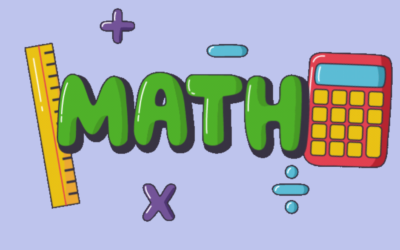Recently I had such a nice visit to the Seattle Art Museum. It reminded me of how well dyslexic strengths can be cultivated in the multisensory experiences that are museums. This past summer we had had a visit by Yuko Tsuji, a dyslexia advocate in Japan who...
Um.. Trouble Finding the Right Words [Premium]
A young filmmaker, Lauren, interviewed for our movie shared that she had trouble putting her ideas into words. After the camera had shut off, I told her that many people over the years shared exactly the same thing. Lauren shared that when she reads a book, she gets vivid images of characters, events, and places. When she plans out a movie, she can visualize everything. We know that not everyone has that ability – and her visualization strengths are ideal for what she does today – make films. But there is considerable evidence that what might make you strong at generating pictures and other sensory images, may be balanced by weaker or at least more effortful generation of words. When we surveyed dyslexic and non-dyslexic […]
Free Visual and Hands-On Math Curriculum: Bridges
Recently, I discovered a free visual and hands-on math curriculum from The Math Learning Center, a non-profit organization that grew out of a National Science Foundation project. The curriculum is for Pre-K through 5th grade and it may be helpful as an addition to...
You Think in Words; I Think in Pictures [Premium]
“…when I was a kid, my mother had often asked my father, ‘What are you thinking?’ He’d shrug and say, ‘Nothing’ — a response that irritated her to no end. (‘How can he be thinking about nothing?’ she’d ask me.) I’ve always been on Team Dad; I spend a lot of time thoughtless, just living life. At the same time, whenever I speak, ideas condense out of the mental cloud. It was happening even then, as I talked with my friend: I was articulating thoughts that had been unspecified yet present in my mind. My head isn’t entirely word-free; like many people, I occasionally talk to myself in an inner monologue. (Remember the milk! Ten more reps!) On the whole, though, silence reigns. Blankness, too: […]
Question: How to Help with Reversals [Premium]
Question: My middle grade student still has trouble with reversals. What can I do to help? Answer: Reversals can occur in different contexts, so understanding the different causes can help determine the best solutions. PERSISTENT LETTER REVERSALS Reversals can be a normal developmental finding up until the age of seven years. After that, severe difficulties with letter reversals may require intensive training or even therapy. Letter Recognition Persistent letter recognition problems are usually helped by a variety of multisensory sensory and mnemonic approaches. Programs like Zoophonics combine little memory associations and character drawings to help improve letter recognition. Hand visual mnemonics may help some children to distinguish between the letters b and d, as shown in the bed image: See more: Usually older students develop […]
Visual Learning [Premium]
Two of the strongest differences seen in our survey of 12,291 members of our Dyslexic Advantage community were answers to questions below: LEARNING THROUGH PICTURES, DIAGRAMS, AND IMAGERY “I generally prefer diagrams or pictures to written instructions or explanations.” 70% of definitely dyslexic people strongly agreed with this first statement compared to just 7% of definitely not dyslexic people. And look at the different profiles in response to this question: “When I think of historical facts or events, I see “scenes” or images in my mind, rather than just recalling verbal descriptions. 64% of definitely dyslexic people strongly agreed with this statement, compared to just 8% of definitely not dyslexic people. Think about the implications for schooling, but also workplace communication! No wonder clashes are […]
Nature Journaling with John Muir Laws
"I notice, I wonder, it reminds me of" are powerful prompts that lead you to observe more deeply, ask better questions, and make interesting connections." — John (Jack) Muir Laws This is a great time to get outdoors and draw. Even if you're a backyard nature...
The Power of the List [Premium]
For many of us, hearing about a new technology, app, or software can result in mixed feelings. We may have hope about better organizing and simplifying our lives, but also have reasonable worry about a difficult learning curve, a complicated interface, or any number of problems that can prevent us from reaping the benefits of whatever thing we are hoping might help. Enter – the simple list. If you have a weak short term or working memory, but great long-term memory and you don’t like reading lots of extra text, then lists may be the perfect productivity tool for you. Putting something down on a list can offload your working memory, but also have the benefits of reinforcing the big picture, while never losing sight […]
Question: What about Dyslexia and Reading Comprehension? [Premium]
Q: WHAT ABOUT DYSLEXIA AND READING COMPREHENSION? Answer: For many older and certainly remediated dyslexic people silent reading comprehension may be strong and unimpaired. Students who still struggle significantly with decoding will obviously have trouble with reading comprehension, as might be expected. But after the intensive work of decoding is overcome, reading comprehension weaknesses may become more difficult to understand. Dyslexic students who are partially or perhaps fully remediated may have difficulty with certain types of text, especially if they involve long and uncommon words. Sometimes these readers may only have trouble with college-prep or college-level reading due to additional challenges like the need to understand complex grammar. But students with dyslexia plus some other factor – whether its ADHD, low working memory, and a […]
Visualizing for a Living [Premium]
“My mind is very visual: I can see anything in pictures, and I always visualize things. I can’t help it. It’s how I’m wired. So whatever you talk about, I’ll see pictures in my head. Very vivid, colorful, lifelike pictures. They aren’t still pictures. I can make them move. Reality, fiction, whatever. I really have to pull it back in to get focused. It was also a problem in the classroom because I’d sit there and imagine where I’d want to be, and what I’d want to do, and what I wanted to become, and I’d think happy thoughts, and I’d just be tuned out the whole time in class.” — CEO Glenn Bailey When Brock and I were on a radio show years […]
Visual Notes for Understanding: Science [Premium]
Note-taking may be a lifelong difficulty for most dyslexics. In one survey of 17 universities in the United Kingdom (HERE), 78% reported difficulties with taking notes compared to 47% reporting reading difficulties. The reason for note-taking difficulties are several – note-taking requires a great deal of working memory and divided attention, but also there’s the transcription of heard words to written words which can be difficult for a number of reasons, not the least, weakness in visual word form memory and for some students, auditory processing. Most dyslexic students should have classroom notes or other note-taking accommodations (like a designated note taker, Livescribe pen, or other option to record) as a standard condition. It is possible to learn how to visual note-take in real-time, but […]
Lip Reading and Dyslexia [Premium]
There is a long and diverse research history of dyslexia and documenting the auditory processing difficulties associated with dyslexia that hinder phonological awareness. It’s why dyslexic kids will struggle in school when everyone is required to wear a mask. The sounds are muffled, but also if the teacher is masked, then students cannot look at the teachers mouth – as an additional cue to what sound is being made. In a recent study published by Annals of Dyslexia, researchers made an interesting observation: “those children with dyslexia who are better readers attended more to the mouth while presented with a person’s face in a phonologically demanding condition.” More research needs to be done about this issue, be aware of helps like watching a video of […]


![Um.. Trouble Finding the Right Words [Premium]](https://www.dyslexicadvantage.org/wp-content/uploads/2023/12/Um.-Finding-the-Right-Words-400x250.jpg)

![You Think in Words; I Think in Pictures [Premium]](https://www.dyslexicadvantage.org/wp-content/uploads/2023/02/Screen-Shot-2023-02-16-at-12.28.43-PM-400x250.png)
![Question: How to Help with Reversals [Premium]](https://www.dyslexicadvantage.org/wp-content/uploads/2023/01/reversals-300x250.png)
![Visual Learning [Premium]](https://www.dyslexicadvantage.org/wp-content/uploads/2023/01/visual-imagination-400x250.png)

![The Power of the List [Premium]](https://www.dyslexicadvantage.org/wp-content/uploads/2022/12/Power-of-List-Dyslexic-Advantage.jpg)
![Question: What about Dyslexia and Reading Comprehension? [Premium]](https://www.dyslexicadvantage.org/wp-content/uploads/2022/08/Question-What-about-Dyslexia-and-Reading-Comprehension-Premium-scaled.jpeg)
![Visualizing for a Living [Premium]](https://www.dyslexicadvantage.org/wp-content/uploads/2022/05/Visualizing-for-a-Living-Premium-400x250.jpg)
![Visual Notes for Understanding: Science [Premium]](https://www.dyslexicadvantage.org/wp-content/uploads/2022/03/Visual-Notes-DA-Premium-March-2022-400x250.png)
![Lip Reading and Dyslexia [Premium]](https://www.dyslexicadvantage.org/wp-content/uploads/2021/11/lip-reading-400x250.jpg)













